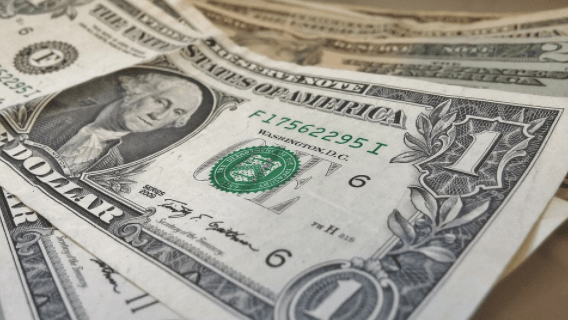
When debt collectors come a-calling, it makes sense you feel urgency to alleviate the problem by throwing as much money as possible toward repaying what you owe. But it’s important to take a deep breath, step back and look at your financial priorities from a big-picture perspective.
Should you put all your income toward paying off debt? Probably not, especially if it comes at the expense of saving for emergencies and retirement. Here’s a closer look at how to handle this common conundrum.
Saving vs. Paying Off Debt: Striking the Right Balance
Funneling all your money into debt repayment will chip away at your outstanding balances faster—and can reduce the amount you’ll pay in total interest. But it’s also a risky move to forego saving altogether. What if an unexpected expense crops up? Without savings, you’ll have no choice but to go further in debt to accommodate the abrupt cost.
Always pay at least the minimum balance due on each debt. This is non-negotiable if you want to keep your credit score in good standing and keep your bills from going to collections. But if you have extra income after doing so, tuck as much as you can into an emergency fund until you’ve amassed three to six months’ worth of living expenses. This will prevent you from having to reach for the credit card to cover emergency expenses like medical bills, auto repairs and sudden travel.
Your overall financial health is only as good as your safety net. Avoid putting your emergency fund on the backburner until after you’ve paid off all your debt. Keep building it up until you have a comfortable cushion. While it may put a delay on your debt-free date, you’ll be covered if life throws you a curveball.
What If You’re Struggling to Make Minimum Payments?
Of course, many Americans are not in a position to decide what to do with extra money from each paycheck—especially those of us already struggling to keep up with minimum payments. If your debt is totally overwhelming your ability to make minimum payments, let alone pad your emergency fund, it may be time to explore various debt relief solutions.
If you’ve got thousands in unstructured debt to the point that paying off your debt in full feels like a pipe dream, a strategy like settlement could help. The ideal outcome here is settling your debts for less than the original amount owed. People who enroll in settlement programs are typically already having a hard time staying on top of minimum payments, watching their interest tick up on the thousands they already owe.
Not only is it challenging to balance paying off debt vs. saving, but it can even be complicated to decide which debts to pay off first with a limited budget. People who enroll in settlement programs often express relief at having to make one monthly deposit into a special account that will go toward negotiating debts rather than having to decide which bills get paid and which go delinquent. Before enrolling yourself, make sure to read through Freedom Debt Relief reviews and the like to get a feel for what makes a debt settlement company legitimate.
When It Makes Sense to Maximize Debt Repayment
So far we’ve established that it’s rarely a good idea to devote all your money to debt repayment, especially in lieu of saving. But there are times when it makes sense to put more of your money toward debt repayment, like if you have certain debts with very high interest rates. Cutting your interest rates is a guaranteed “return” that’s typically higher than the returns you’ll get from investing your money or earning interest on a savings account.
Should you put all your income toward paying off debt? Not if it means you have to abandon your emergency fund. But it’s certainly smart to explore your options for repayment and come up with a focused strategy for systematically eliminating debt.
